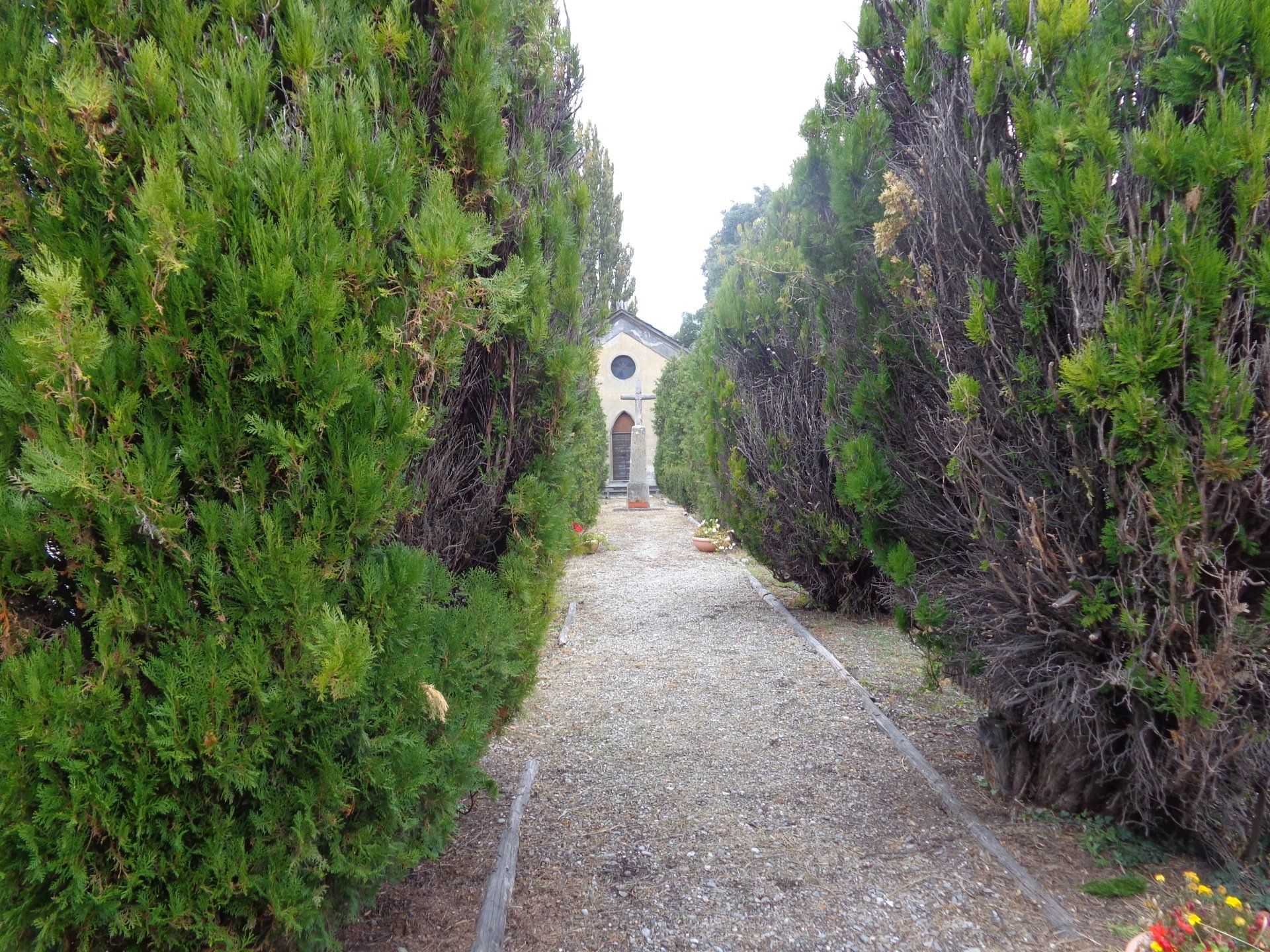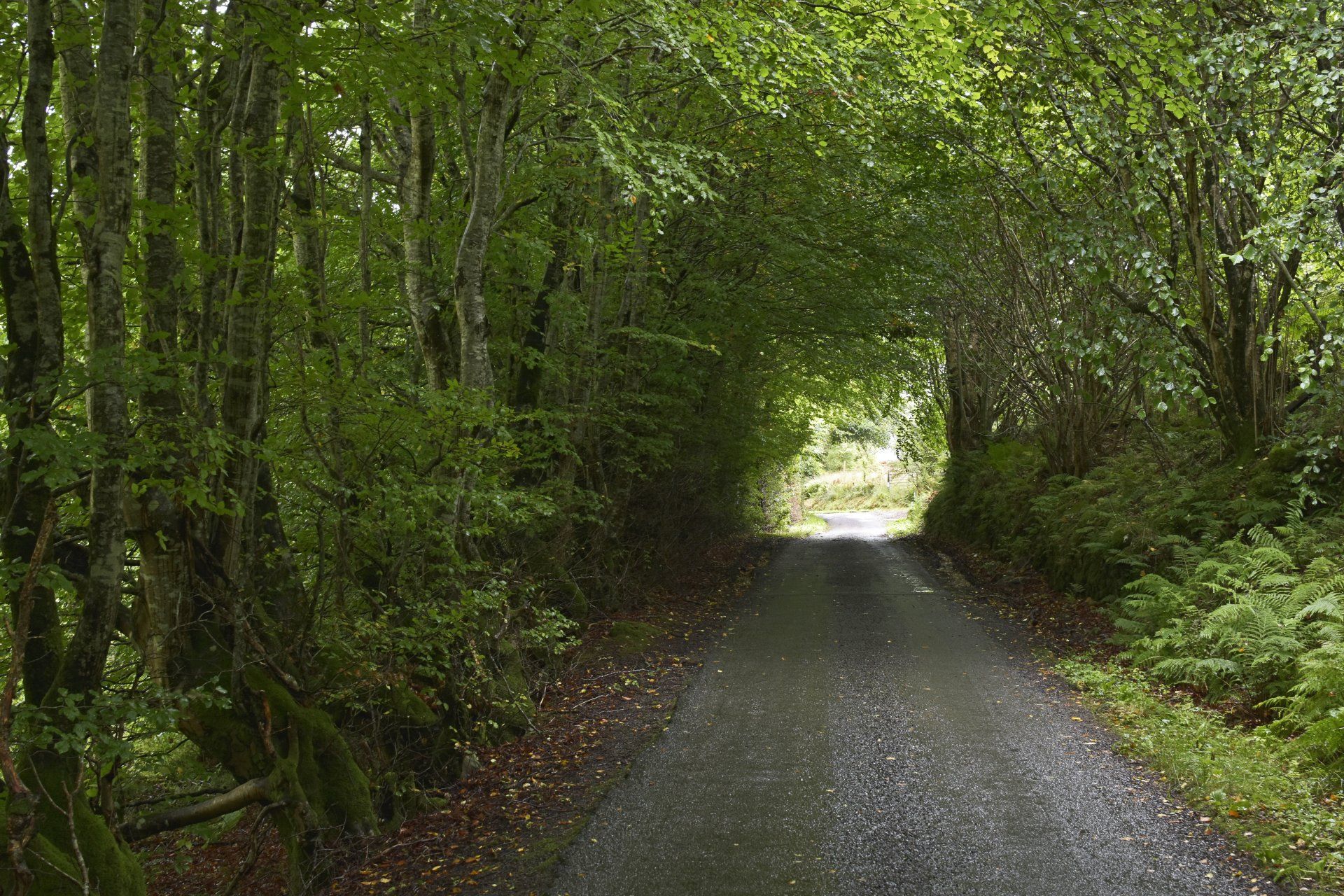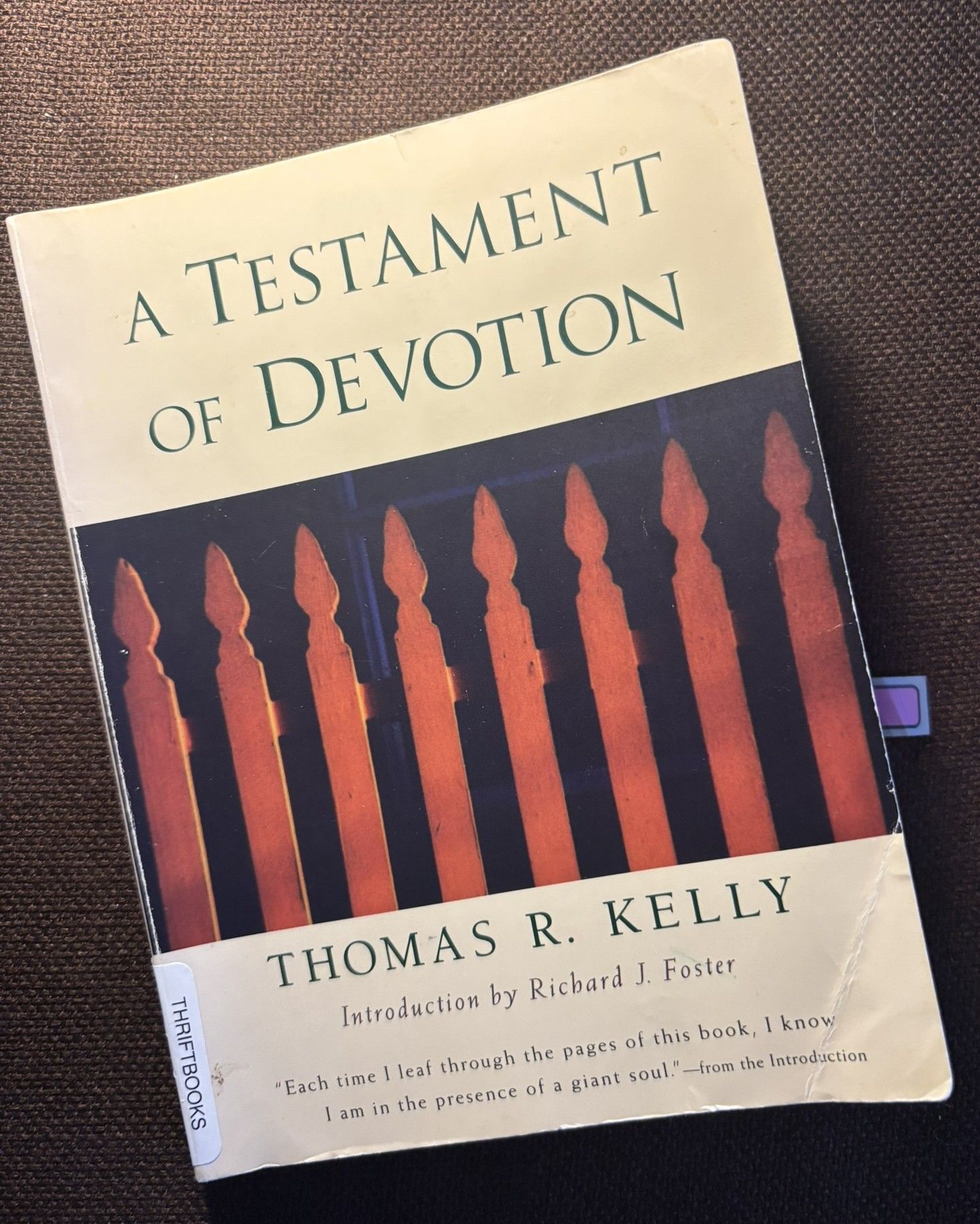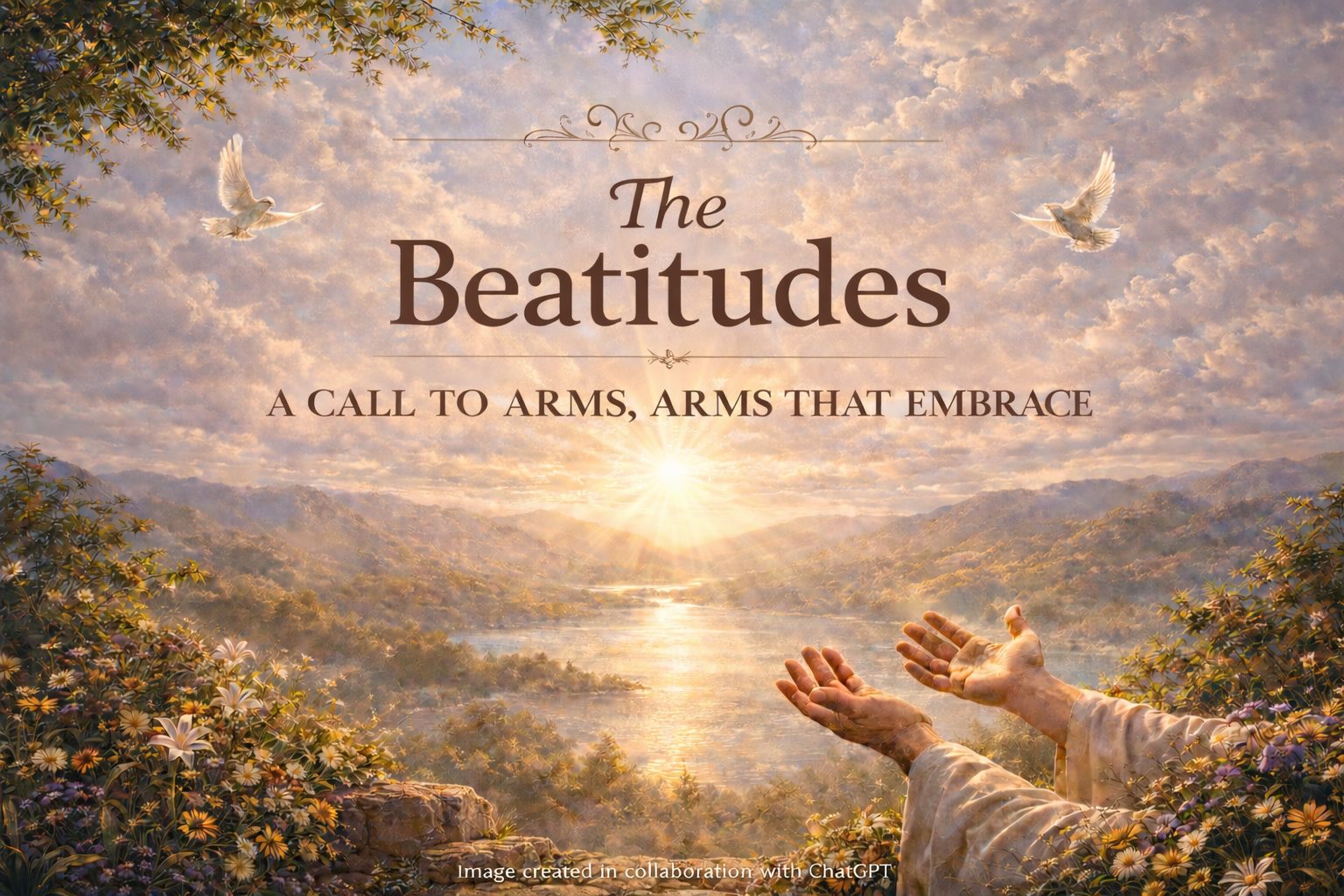My First Retreat In A Catholic Monastery
The (Unending) Path Toward (in the direction of) Perfection
Like many, in my lifetime I have been pulled to and pushed away from religion, church, spirituality, and that which accompanies them. To arrive where I am today, which I think can most easily be described as a Christian contemplative wannabe
or just a pilgrim-in-training,
has been circuitous, labyrinthine it seems in my memory, but the path extends now before me step-by-step, moment-by-moment, breath-by-breath.
The quiet inside the monastery is eery, and takes a while to get used to, but soon I am immersed in lush hush. The sounds of a building, creaks and sighs and pipes, mask footfalls on carpet of the few others who happen upon me sitting quietly reading or meditating. The interruption of the Benedictine Divine Office through the morning, day, and evening shakes me out of that deep peace, but is welcome. I have never been a person with great discipline, but daily rituals and practices I am finding are a great comfort and source of growth. These services are another connection to something deeper than I am used to experiencing.
This is a continuation from the earlier essay,
My First Night In A Monastery , in which I share my notes from my stay in the Benedictine
Monastery of the Ascension , located just outside Jerome, Idaho. I apologize in advance to my Catholic friends as there are a number of activities described from the eyes of first-time experiencer (and a Protestant as well) which are no doubt rudimentary perceptions of what are much deeper Catholic practices.
Day Two...
January 14, 15, 16, 2015
I spend most of the rest of my time at the Monastery of the Ascension, between meals and services, meditating and reading and scribbling in my journal.
After a couple of days of this I realize I don’t want to be a monastic monk. The life just doesn’t seem to be for me. Two strengths of monastic living are repetition and living in a community for life. These I think would get old for me. I just can’t imagine going through the same routine many times, often with the exact same small group of people, for decades. One person at the Ascension monastery has been there since it opened in 1980. That’s 35 years on one small plot of land.
But before jumping to any conclusions I should interview some monks. But not this time. This time I’m just here to breathe in and to breathe out.
It took me until Thursday to realize that the only time the monks don’t wear their robes to service is at noon.
I simply had to get out and take a walk on Thursday. The snow was beautiful, flecking the row of evergreens on the road leading to the monastery. The surrounding fields were flat farmland, covered in white.
When I think of the reasons not to believe in God, and to let science attribute everything to natural causes, I am stopped when I come to think about our concepts. Our feeling for beauty sometimes transfixes me. Beauty! Love! These two probably represent a panoply of evolutionarily-derived feelings tied together. How about inspiration? Yes, if even evolution can explain it, and I have a very hard time thinking of a white bearded guy pulling the inspiration strings. But we seek God, me included, maybe most especially me included. We always have. A crutch? An inspiration? Yes and yes.
Those who follow God seek to do good, basically. Religion may become perverted but in churches, by and large, there are more do-gooders, more of a positive community, than any other place one might stop by. That says a lot to me. It says that’s the kind of place I want to be at, the people I want to be around, even if I can’t stay at a monastery more than a few, short days.
Dogma? I have a hard time believing most of this human-created orthodoxy. The rituals? I find ritual, many times, to be a conduit to higher, more sacred spots, even as I find art, cathedrals, and stars at night.
Does God speak to me? Maybe. I’m not hearing a clear voice. But it could very well be my ears have the wax of cognitive hubris in them.
-------------------------------------
It took me a long time to know who the prior was. I had to read their newsletter, The Desert Chronicle . They leave you alone here, which is a blessing. They are very gracious but not outgoing. The “guestmaster”, Father Norbert, always waits for me before services, with a binder open to the readings and a book of the song we will be using during the service. He points out the song when he gives it to me, but during the service he still calls out the song page number anyway (I assume only for my benefit since I’m the only non-monk in the room), which I appreciate.
We don’t get to see the monk’s quarters, but the building is impressive. A woman shows up for the Eucharist each morning. I assumed the first time it was just a person who wanted to celebrate communion, but it turns out they are helpers for the service, bringing in – I think – the host and maybe the wine during the service. Perhaps she is an oblate, a secular someone who has taken vows to be of special service to the monastery. It was a pleasure to see her. The monks – including the three who are in early stages and don’t wear robes, pre-vows, I think – sit on either side of the altar, about five to a side.
Some of the monks are called “Father” and some “Brother”. I didn’t realize before that one could be a monk and not be ordained. Those are the brothers. The fathers are ordained.
The chapel is small, intimate, but not tiny. Walking through the entrance doors there are binders and book to the left and right, which you pick up. There are chairs for the visitors – I don’t think this is a “congregation”, it is not a parish, after all – and they are comfortable, lined up and hooked together. Straight ahead is the organ and doors leading to a part of the building non-monks don’t visit. Walking in, to the right is the altar, the sections left and right for the monks, and of course Christ on the Cross.
I didn’t write down the differences between services, but the daily Eucharist is notably different than the others. Communion is served here, there is a message from the leader. Since I have always loved the serving of communion this is a special time for me. I’m disappointed because, unlike our United Methodist tradition which invites all to partake, only Catholics are supposed to take the bread and the wine. Still, each time I cross my arms across my chest, go up, and receive a blessing. This gives me peace.
-------------------------------------
It is Friday morning and a snow storm is heading our way. I decide not to take chances in my little car so we – my car and I - take off for home right after breakfast. It is a long, snowy, icy journey. Back at the Monastery of the Ascension they are cleaning the kitchen still. I’m a blip to them, not even a distraction. I will never forget them.
Since this personal retreat I have spent more time here in the Monastery, including another personal retreat. This is a sacred spot, a place of peace and contemplation, with dedicated servants of the Catholic Church making their lives there. I plan to return as often as I can. The path is never-ending, the way is winding, each moment is precious.
Learn more about the Monastery of the Ascension here: http://idahomonks.org/index02.htm
To receive all our Profound Living posts, please subscribe (it won’t cost you anything but time to read): https://www.profoundliving.live/
Please consider following the Profound Living Facebook page
And... please share this essay with others who might find it beneficial.
Finally, for something more wide-ranging, check out The Profound Bartender.













